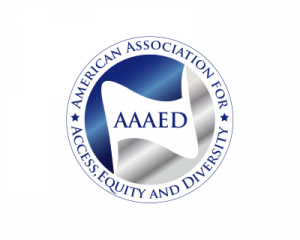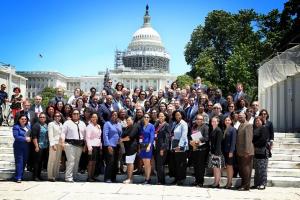ASSOCIATION FOR ACCESS, EQUITY AND DIVERSITY URGES ACADEMIC INSTITUTIONS TO CONTINUE EMBRACING DIVERSITY AND INCLUSION
ASSOCIATION OF EQUAL OPPORTUNITY PROFESSIONALS URGES ACADEMIC INSTITUTIONS TO “STAY THE COURSE” DESPITE THE COURT’S DECISION ON RACE-CONSCIOUS ADMISSIONS
Effectively reversing 45 years of judicial precedent, the Supreme Court ruled today that the Harvard and UNC admissions programs were unconstitutional and violated Title VI of the Civil Rights Act o 1964. It also determined that the 14th Amendment was colorblind: “Eliminating racial discrimination means eliminating all of it. Accordingly, the Court has held that the Equal Protection Clause applies ‘without regard to any differences of race, of color, or of nationality’— it is ‘universal in [its] application.’”
Founded in 1974 as the American Association for Affirmative Action, AAAED is the longest-serving organization of Equal Opportunity Professionals. For 49 years, the Association has stood for equal opportunity in education, employment and contracting. AAAED Executive Director Shirley J. Wilcher stated that “the Supreme Court is attempting to freeze in time the march toward racial diversity by invoking the 14th Amendment and asserting that this amendment, enacted to erase the vestiges of slavery, is color-blind to the continued scourge of racial discrimination and exclusion in the United States.” She added: “By erasing 45 years of precedent, those who were intended to benefit are least likely to do so.”
The Association urges that despite the Court’s failure to respect forty-five years of precedent, there is much that colleges and universities can do to promote diversity within their student population. Wilcher added: “Students remain free to highlight in their essays their own lived experiences as children of color and their ability to overcome challenges they experienced by virtue of their race and ethnicity. Nothing in the Court’s decision would prevent that, nor would it preclude the use of scholarships, need-blind admissions, transfer programs and targeted recruitment efforts that include underrepresented minority groups.”
At this critical time, when students of color may feel unsure about applying for admission to colleges and universities affected by this ruling, the Association recommends that institutions amplify their messages of welcome and inclusivity and increase efforts to ensure a respectful and welcoming campus climate. Academic institutions should also enlist the assistance of their alumni networks and private nonprofit organizations, and consider expanding their partnerships with middle school and high school pipelines, community colleges, Historically Black Colleges and Universities, Tribal Colleges and Universities and Hispanic-serving institutions.
The Association urges that academic institutions should also work with corporations and government agencies to help to identify and mentor a diverse pool of students who will enhance the pipeline of applicants including individuals of all ethnicities, genders and abilities. Private foundations, unconstrained by the ruling, should increase their efforts to provide academic and financial support for talented underrepresented students seeking access to competitive institutions of higher education.
Carol Ashley, Esq., an attorney with Jackson Lewis P.C., the firm that co-authored the amicus curiae brief for the organizations, stated: “Colleges and universities should remember that the civil rights laws protect underrepresented students of color as well, and they should review their admissions programs and strategies to promote nondiscrimination, equal education opportunity and equal protection of the laws. All sectors must work to ensure that the progress made through DE&I and affirmative action programs is not lost.”
Dean Sparlin, Esq., a former member of the AAAED Board and co-author of the brief, added: “We emphasize that the SFFA decision is limited to higher education admissions programs at selective colleges and universities where race was one of many factors in the selection of applicants. This decision does not govern any other sphere including employment and contracting.”
Consistent with their academic missions, colleges and universities should continue to support affirmative action and the benefits that flow from diversity. Wilcher added: “Much work remains to be done to develop the next generation of leaders. Forty-five years of equal opportunity policies will not end today. We will persist.”
###
American Association for Access, Equity and Diversity
1701 Pennsylvania Avenue, NW, Suite 200 * Washington, D.C. 20006
202-349-9855 * 866-562-2233 * Fax: 202-355-1399 *
www.aaaed.org www.Leadfund.org
Shirley Wilcher
American Association for Access, Equity and Diversity
email us here
Visit us on social media:
Facebook
Twitter
LinkedIn
Instagram
Legal Disclaimer:
EIN Presswire provides this news content "as is" without warranty of any kind. We do not accept any responsibility or liability for the accuracy, content, images, videos, licenses, completeness, legality, or reliability of the information contained in this article. If you have any complaints or copyright issues related to this article, kindly contact the author above.



